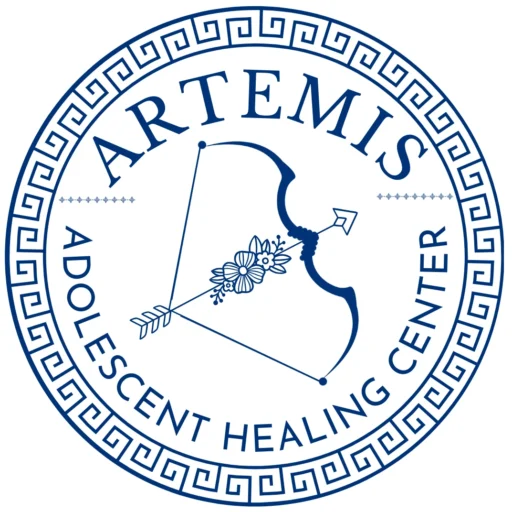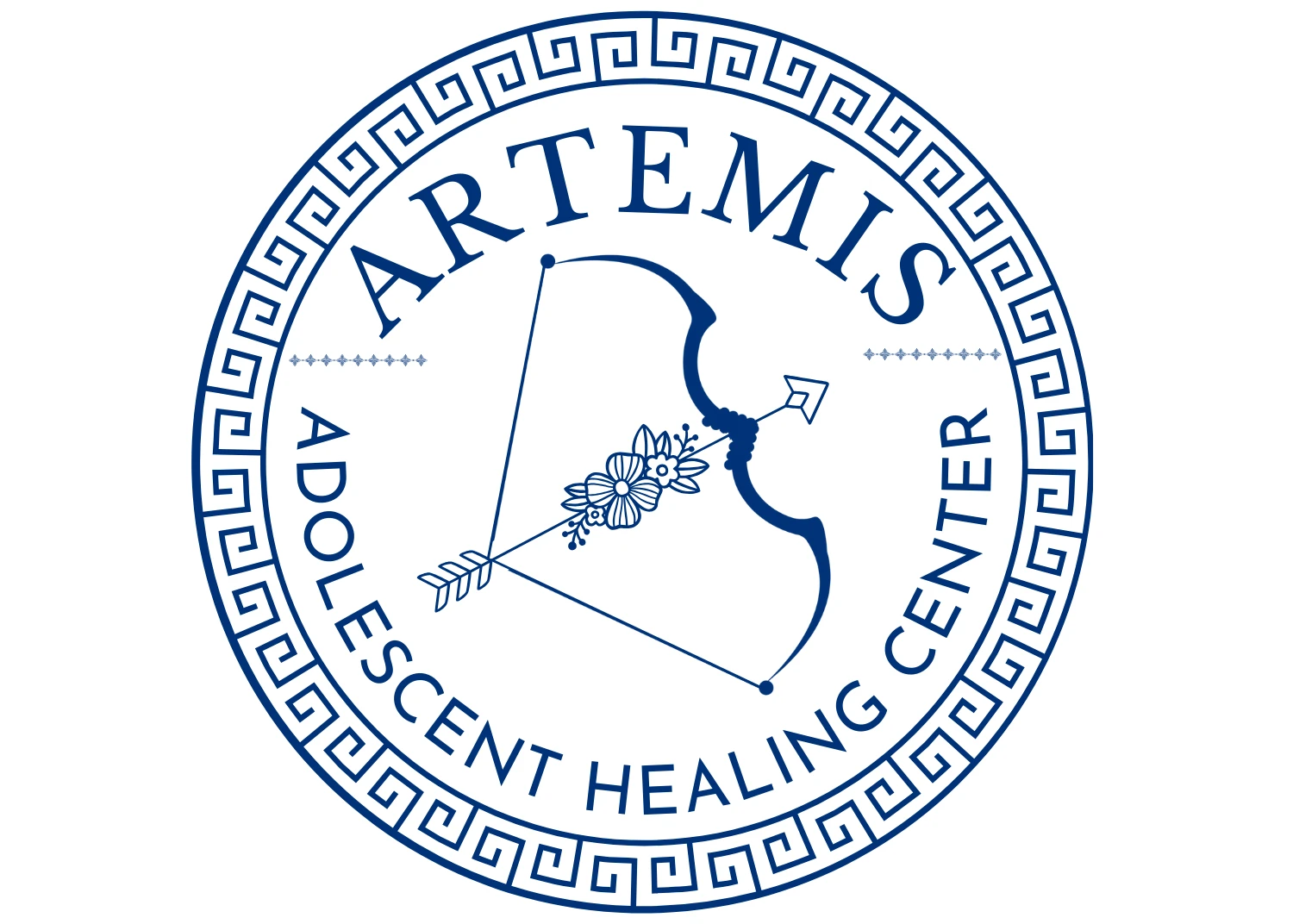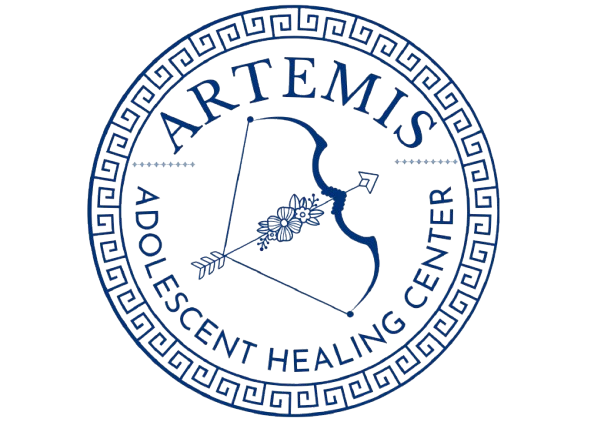Find Effective Programs for Adolescents and Teenagers at Artemis
Watching your teenager experience the physical and mental erosion that comes with drug abuse is one of the most painful things that can happen to a parent. It can be almost impossible to find the relief you need if your teen abuses an illegal drug or suffers from substance abuse in general.
But it’s important to remember that you’re not alone in your fight against teen drug abuse. The impact of illicit drugs affects the well-being and mental health of young adults nationwide.
At Artemis Adolescent Healing Center, we specialize in assisting teenagers and young adults to overcome teen drug abuse, leading them away from challenges in the juvenile justice system and, ultimately, the adult justice system.
If you care for a young person who is struggling to overcome teen drug addiction, the following article dives into the programs available at Artemis in Arizona. Here’s an inside view of how we specialize in assisting our nation’s most important age group fight back against substance abuse.
Choose Evidence-Based Treatment Programs at Artemis
Why Are Teens Such a Vulnerable Demographic Associated with Drug Use?
Why is teen drug addiction placed under such heavy scrutiny, considering the fact that illicit drug use impacts nearly any demographic imaginable? In fact, teen drug use seems to take place at lower rates than most other age groups, according to surveys—so what makes the adolescent/high school years such a perilous time when it comes to drug use?
The answer is simple. Adolescence is the most critical period of development most of us ever face. Teenagers face emotional, social, and physical changes that make them more likely to experiment with marijuana, prescription drugs, psychedelics, or a laundering list of other drugs that just happen to surface at the wrong place at the wrong time.
A Whirlwind of Emotion
Whether it’s peer pressure, influences from older family members, or coping with low self-esteem, teens often begin using drugs to either:
- FIt in
- Escape stress (albeit, most of the time, unknowingly)
- Escape reality
- Or seek thrills or a change in consciousness
What Types of Drug Abuse Are Favored Among Teenagers?
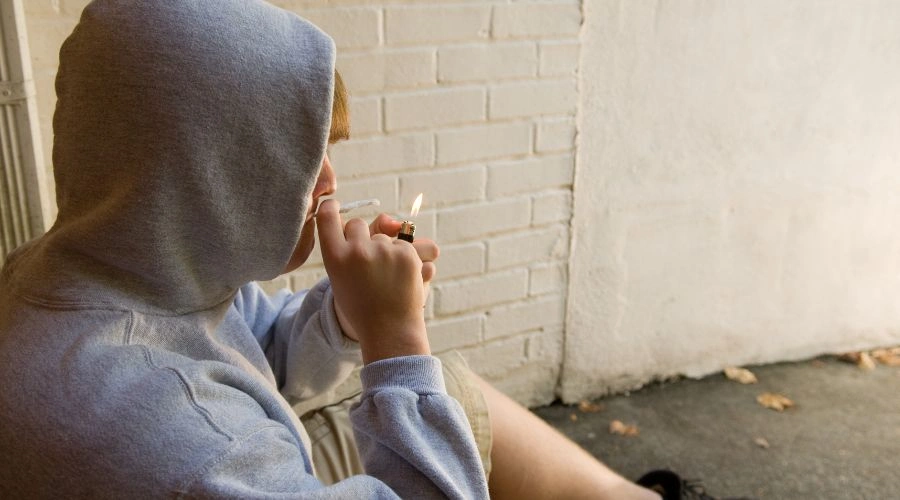
Teen drug use is centered mostly around the following substances. Unless otherwise noted, these are drugs young people use from 9th to 11th grade:
Alcohol and Nicotine
Substance-abusing youth caught experimenting with tobacco and alcohol likely face fewer negative consequences, especially when this isn’t viewed as “illicit substance use” by many. Legislation on age regulation would say much differently, but when rooted in public opinion, the view on young people drinking as opposed to sniffing cocaine or shooting heroin is seen as far less innocent. The truth is, that alcohol use by young people can be just as dangerous as other drugs they might encounter among their peers.
Marijuana
Marijuana tops the charts regarding illegal drug use among teens. However, many fear that marijuana use is viewed almost as an innocent infraction as tobacco or alcohol. This is attributed to the nationwide surge of legalization and decriminalization of pot and THC-related products.
Synthetic Marijuana
Not all teenagers live in legal states, making it much easier for older teens to procure and engage in marijuana use. Some young people are at an increased risk of experimenting with substances known as “Spice” or “K2.”
These can be even more dangerous than marijuana, considering the way they interact with personality disorders, and cause the same results as illegal hallucinogenic psychoactive substances. There have even been reports of attempted suicide by those using these lab-made weed look-alikes.
Get Accredited Treatment Programs at Artemis
Prescription Medication
Many high school students who suffer from ADHD have been prescribed medications like Ritalin, Adderall, and Vyvanse since they were in grade school. When a teen’s friends” learn about the high of stimulants, it can be hard to resist peer pressure and not dish out a few of their pills.
It doesn’t take long before they get curious, potentially experimenting with much larger doses. This makes the situation more dangerous for the prescribed young people, as these medications are for mental health disorders.
Using drugs this way can easily lead young people into not only substance use disorders from a very young age but also an increased risk of mental health problems from stimulant overuse.
Harder Drugs Like Cocaine and Fentanyl
Usually not as common, teenagers begin using drugs like cocaine, methamphetamine, heroin, and fentanyl at the 12th-grade level and higher. This is normally for one of several reasons:
- They begin interacting with older age groups who have easier access to harder drugs
- The experimenting conducted during high school has led to using drugs on a regular basis to mask a mental health disorder
- The gateway drug theory is always a factor. However, we don’t necessarily agree with any specific substance as the culprit. Using drugs eventually leads to discovering more new, undiscovered substances you weren’t aware of. It’s usually not a matter of if but when.
What Are the Risk Factors of Teen Drug Addiction?

Learning why a teen might lean on substance use can help parents and mentors discover earlier intervention methods. Certain factors and warning signs might indicate you’re dealing with a young person—or group of young people, engaged in substance misuse:
1. Family History
Many argue that this could potentially be the most significant driving factor regarding substance use risk factors. While addiction certainly is an inherited trait, strong evidence exists on both sides of the nature vs. nurture debate when discussing reasons for reported substance abuse in teens.
2. Peer Pressure
Growing up as a teenager is a difficult time for any young person, regardless of their economic or social background. It’s an age where most young people are looking for something they can relate to, and some will go to great lengths to feel accepted and avoid that stomachless feeling of rejection.
3. Thrill-Seeking Behavior
Certain individuals are programmed from a young age to search for a change in consciousness or look for their next thrill. Whether the high comes from the drug itself or the act of breaking the rules, the adrenaline high can lead to full blown drug abuse just as fast as any driving factor.
4. Low Self-Esteem
Another common factor—and often one that follows many teens into adulthood, leading to higher cases of long-term abuse, is low self-esteem. Many teenagers aren’t capable of making the connection when a drug eliminates their social anxiety or depression, providing them with “that something” they’ve always yearned for. Low self-esteem cases can quickly spiral into perpetual use, and rapid intervention is key to avoiding long-term challenges.
5. Academic and Social Pressures
Academic and social pressures aren’t quite the same as peer pressure cases, as the driving force often stems from parents, coaches, and even teachers. The call to perform at high levels of academic or athletic performance can come from multiple sources—even the parents of other children who play on the same team. When a teenager is instilled with the belief that failure is not an option, substance abuse may creep into the picture as a means to maintain a competitive edge.
Young people engaged in serious relationships during their high school years are also at risk of teen drug use. It can become a crutch in the event of heartbreak or disappointment or a way to bond when one-half of the relationship is already participating in some form of drug or alcohol use.
Knowing all of the above, teenagers can still be very hard to read and aren’t always the most forthcoming with information or calling on their parents as sources of information or moral support regarding drugs. This isn’t generally due to a lack of care from the parent but more of a fear of being punished or misunderstood.
If your teenager hasn’t discussed anything related to drug abuse, but you believe that this might be an area of concern, the following signs could highlight their potential struggle.
Signs Your Teen May Be Experimenting With Drug Use
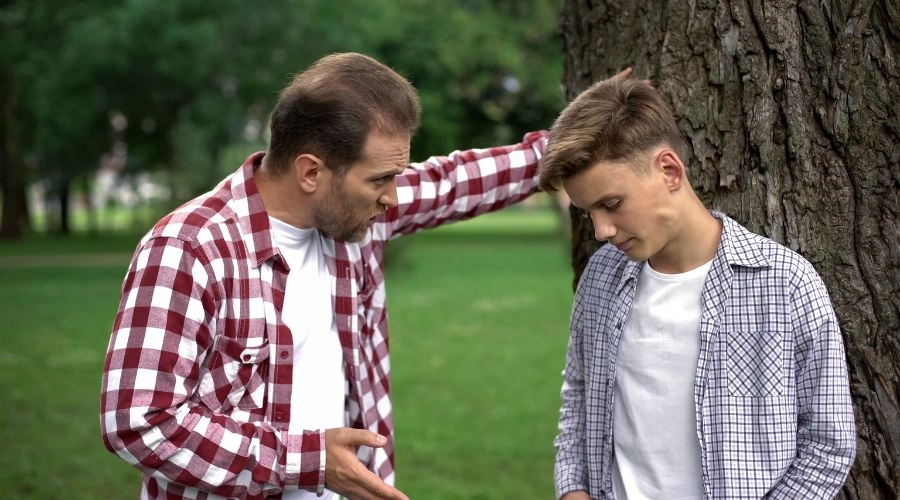
It’s hardly easy to recognize the signs of drug abuse in young adults. However, it’s critical to stay mindful of the following red flags:
- Rapid Personality Changes. Mood swings, irritability, sleeping more than usual, and avoiding family activities can all be potential signs of teen drug use.
- Sharp Decline In Grades. If there are no other obvious factors, like a divorce or death in the family that could lead to rapidly declining grades, this could indicate your teenager is spending more time getting high than they are studying.
- Changes In Appearance. For most teenagers, their looks are one of their more pressing concerns. Neglect in hygiene, rapid weight gain or loss, and red, watery, and dark-circled eyes might be all the proof you need.
- Rebellious Behavior. If your teen starts breaking the rules and defying authority seemingly out of nowhere, this could demonstrate their addiction to risky behavior, identifying a potential drug problem.
Discovering your teenager has developed a drug addiction or was caught at school possessing a drug such a meth, can be alarming. This may leave you feeling isolated, overwhelmed, or afraid to seek help over potential legal and social implications. The truth is, you’re far from alone, and the only negative outcome you could face is the result of not seeking help for your teenager.
Up To 100% of Rehab Costs Covered By Insurance
It’s Okay to Not Be Okay: Reach Out for Help, Today
At Artemis Adolescent Healing Center, our goal is to first instill in you the fact that it’s okay to not be okay. The best step you can take toward the healing process is to contact a member of our admissions team.
We help teens and their guardians overcome the challenges of drug use, sharing the wealth of knowledge we’ve learned over decades of combined experience. Our evidence-based treatment plans ensure your teenager gets the unique care they deserve to ensure long-term recovery, driving home the message of hope that you both desperately need.
